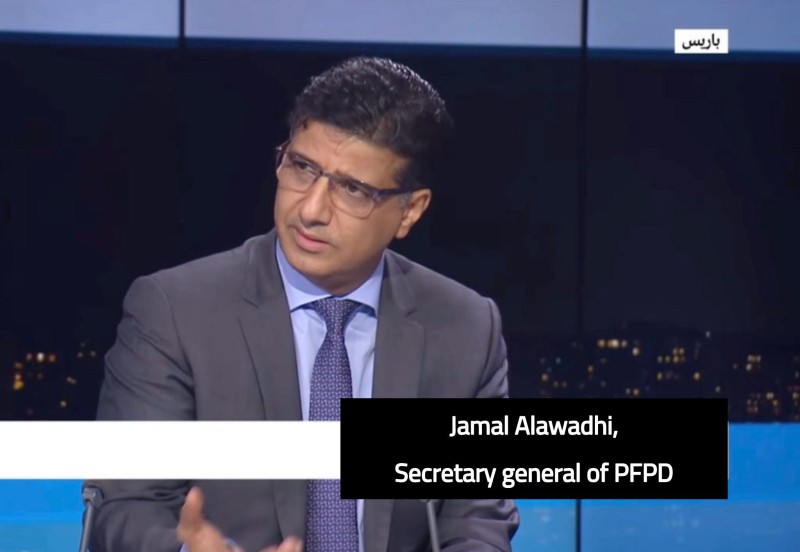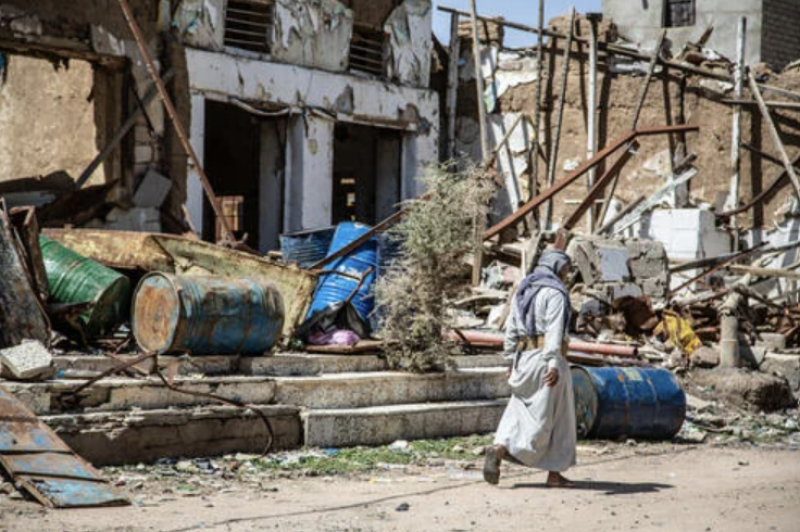Israel-Houthi Tensions Heat Up – What’s Next?


Since Hamas’s October 7 terrorist attack, Yemen’s Houthis have regularly attacked Israel, joining its fellow members of the Iran-backed “Axis of Resistance” in solidarity with Hamas. Not only have they fired missiles and drones at Israel, but the Houthis have also disrupted commercial shipping by attacking ships in the Red Sea, one of the world’s busiest maritime trade arteries. The pace of its attacks on Israel ramped up significantly in December, as have Israeli responses. Just this morning, Israel claimed responsibility for airstrikes on Yemeni territory.
The Houthi’s strikes have not caused significant damage, but an unprecedented drone attack hit downtown Tel Aviv in July. Israel’s retaliatory strikes have hit Houthi controlled ports, its international airport and other infrastructure in Yemen. In response to its effort to thwart commercial transit in the Red Sea, the U.S. and UK have launched military strikes against Houthi targets in Yemen over the last year. Nonetheless, the Houthis — who have been fighting Yemen’s internationally recognized government since the country’s civil war broke out in 2014 — appear resolute and have vowed to continue their attacks until the war in Gaza ends.
USIP’s April Longley Alley explains why the Houthis continue to attack Israel and how they have been able to weather Israel’s reprisals and U.S. attacks.
The Houthis only control a small, but populous, part of Yemen, which is one of the poorest countries in the world. Why are they persistently focused on attacking Israel?
Opposing Israel and the West has been a core part of Houthi (they refer to themselves as Ansar Allah or Partisans of God) ideology from the beginning. The movement’s late founder, Hussein al-Houthi, believed that Israel and the U.S. were enemies of Islam, bent on dividing and subjugating the Muslim world. In the wake of 9/11 and the U.S. invasion of Afghanistan, al-Houthi used the slogan “Death to American, Death to Israel, Curse upon the Jews, Victory to Islam” to mobilize domestic opposition to Yemen’s then president, Ali Abdullah Saleh, who supported the U.S. War on Terror. It remains their chant and rallying cry today.
The ambition to wage violent jihad against Israel in particular is embedded in the group’s core ideology, but in practice it has taken a back seat to more immediate, domestic priorities. For most of the last two decades, the Houthis focused on surviving six brutal rounds of conflict with the Saleh regime between 2004 and 2010, expansion into a wider social-political movement during Yemen’s Arab Spring uprising and then consolidation of power as a quasi-state entity in the north during the country’s regionalized civil war, which is technically ongoing but paused on the ground for now.
By 2023, the Houthis were close to securing an end to the war on terms favorable to them. A United Nations roadmap would have included a comprehensive cease-fire, significant economic benefits to the population (including in their areas) and the start of an intra-Yemeni political process that would have likely leaned in their favor, given the balance of power on the ground. Yet the Houthis’ decision to prioritize active military involvement as part of the Axis of Resistance against Israel in the context of the Gaza war has undermined already weak support for a peace deal from the Yemeni government side and divided once unified international support. The United States in particular is opposed to an agreement that would see resources flow to the group amid ongoing attacks.
Ideology and conviction have no doubt played a part in the Houthis’ decision to prioritize attacks on Israel and Israeli and U.S. interests, despite potential consequences. The group’s hostility toward Israel and support for the Palestinians runs deep and there is a belief among some that what is happening is connected to an end of days religious prophesy in which the al-Mahdi will conquer Jerusalem. While these inclinations have always been present, the Houthis are now armed with the ability to strike Israel, thanks in large part to Iranian support. October 7 and the Israeli response in Gaza opened the opportunity for them to act on long promised positions.
Yet ideology is not the whole story. Escalation continues to have significant benefits for the Houthis.
Attacks on Israel remain enormously popular across Yemen, allowing the group to increase recruitment, to have a freer hand to crack down on dissent internally, to label opponents as puppets of Israel and the West, and to deflect attention from dire economic conditions. Their proven ability to strike in the Red Sea and inside of Israel, coupled with their willingness to continue even as Hezbollah and Hamas have been crippled, has raised their stature regionally as the new spearhead of resistance.
They welcome this role, even as it brings Israeli retaliation. It remains to be seen if there is a point of diminishing returns. Until now, it has not come. In short, a combination of ideology, new capabilities and political benefits are fueling Houthi attacks, which they have vowed to continue until there is a cease-fire in Gaza.
Over the last 15 months, Israel has severely weakened both Hezbollah and Hamas. Are the Houthis next? And how have they been able to weather attacks from Israel and the U.S.?
According to Israeli Prime Minister Benjamin Netanyahu, the Houthis are next. On December 22, one day after a Houthi missile caused mild injuries in Tel Aviv, Netanyahu warned the Houthis that they will face the same fate. Israel, he said, “will act with strength, determination, and sophistication. I tell you that even if it takes time, the result will be the same.”
Netanyahu’s ability to carry through on his promise is challenging however for a number of reasons that are specific to Yemen. First, it is not clear that the Israeli Defense Forces has — or will have anytime soon — the intelligence needed to carry out the kind of massive surprise attacks that decimated the leadership of Hezbollah. The Israelis may try. But they had been following Hezbollah closely for decades, while Yemen is a relatively new priority. For their part, the Houthis are a quick study and are no doubt taking counter measures. Only time will tell how this covert battle plays out.
It is not clear that the Israeli Defense Forces has the intelligence needed to carry out the kind of massive surprise attacks that decimated the leadership of Hezbollah.
Beyond the intelligence issue, there is the challenge of geography and the nature of Houthi military forces. The Houthis have a de-centralized military force that is ensconced in Yemen’s rugged, mountainous highlands, which provides ample opportunity to hide military hardware and storage facilities. Equally important, the group also has developed diverse and flexible smuggling routes that allow a steady resupply of weapons. These factors have played a role in blunting U.S. efforts over the past year to degrade Houthi ability to disrupt shipping through the Red Sea corridor.
While anti-Houthi Yemenis want to use the opportunity provided by the hits to Iran’s Axis of Resistance to push back against the Houthis, many are deeply worried that any externally led maximum pressure campaign, especially one led by Israel, will backfire and empower the group. If past is prologue, they should be concerned. Arguably, Yemeni-led pressure on the Houthis has proven more effective in swaying the group.
Currently the Houthis are welcoming a direct fight with Israel and the United States, posting on social media about tribal gatherings rallying to the cause of defending Yemen from Israeli and U.S. attacks. Israeli strikes on the Houthi-controlled port of Hodeidah and the electricity grid are allowing the group to shirk responsibility for growing economic hardship and demand steadfastness from the population in the face of external attacks. As both sides seem to be preparing for continued strikes, the only certainty is greater hardship for Yemen’s impoverished population.

By Jamal Al-Awadhi For years, Yemen has been treated by the international community as a marginal conflict an unfortunate…

AbuDhabi -- The U.S. State Department announced Thursday that Secretary of State Marco Rubio held a phone call with UAE Foreign Minister Sheikh Abd…

Baghdad — The Iraqi government announced the dismissal of several officials following controversy over the inclusion of Lebanon’s Hezbo…